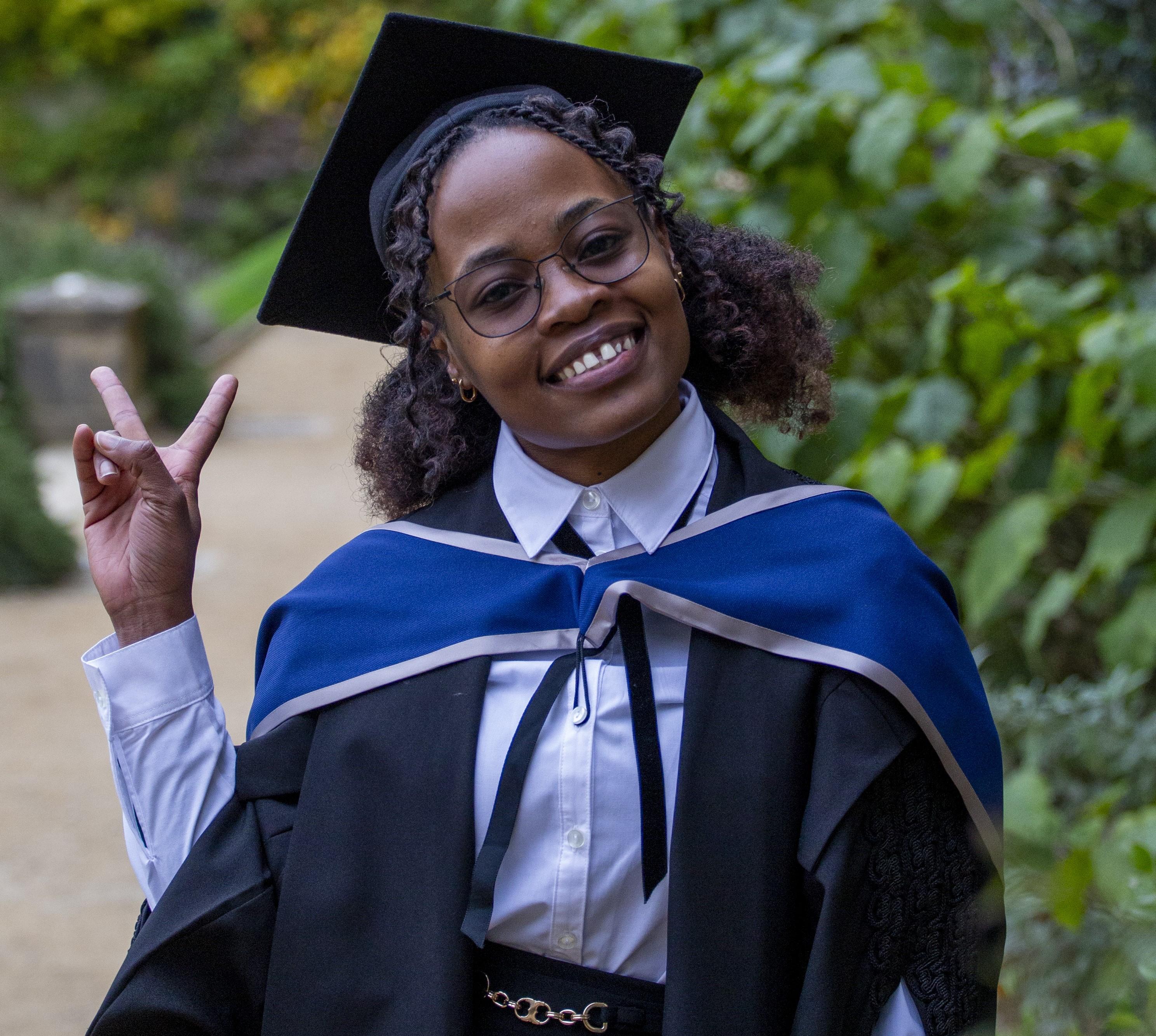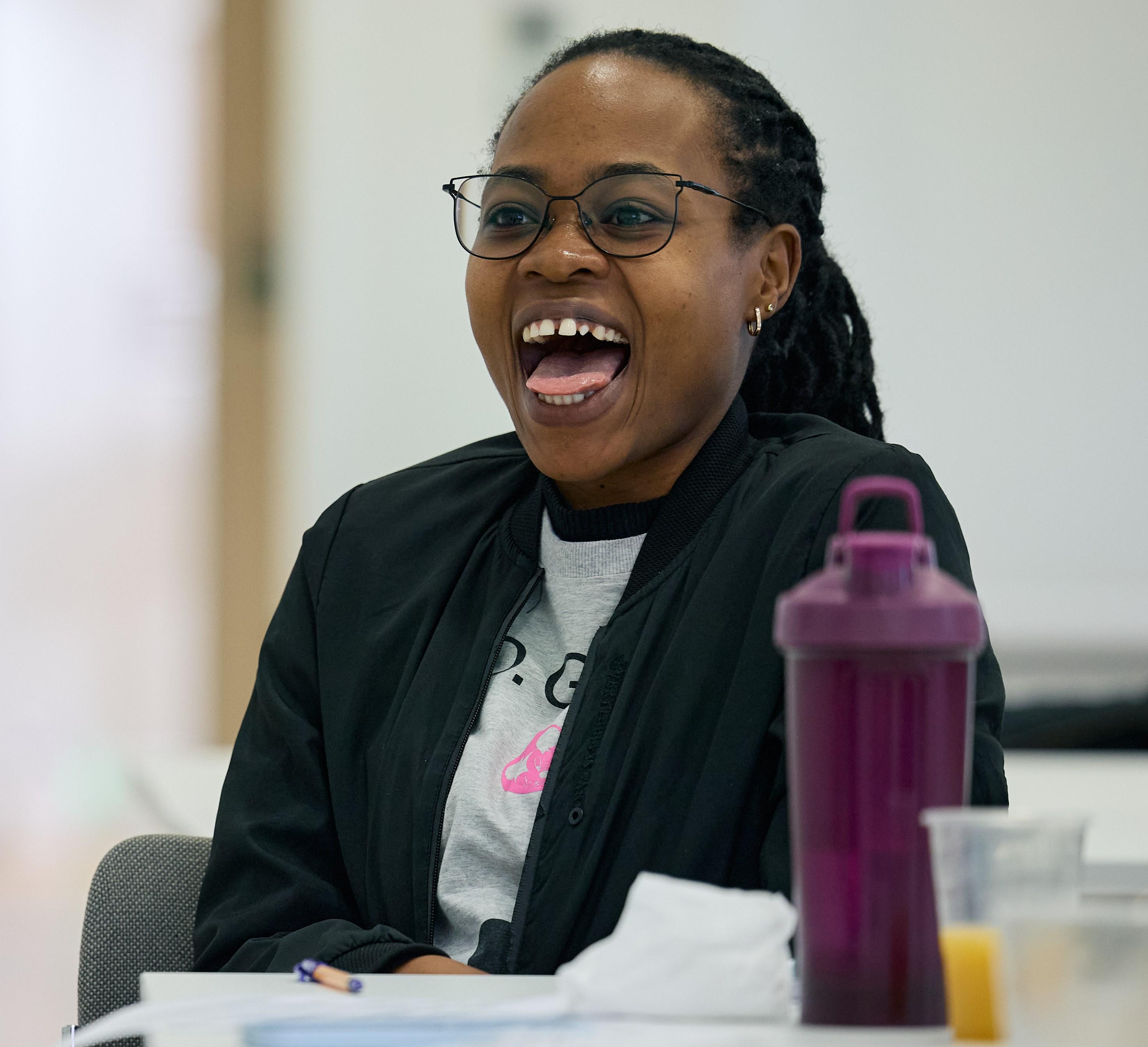Carrying Home with Me: How Oxford Shaped Cynthia Wamukota’s Global Journey in Urban Planning and Climate Justice

When Cynthia Wamukota, a Mastercard Foundation Scholar at the University of Oxford, walked into her first seminar at Oxford’s Blavatnik School of Government, she felt the full weight of being the only Kenyan in a cohort of 147 students. “It was overwhelming at first,” she recalls. “There was a part of me that felt like I had to carry the entire story of my country—and even my continent—into every room I entered.”
But that feeling did not last long.
In that very seminar, a debate on African governance opened the door for Cynthia to speak from lived experience. She shared insights from Kenya’s campaign and election landscape—perspectives not often heard in global policy spaces. The response from her peers and professors was not just respectful, but genuinely curious and affirming.
“That moment changed everything,” Cynthia says. “It reminded me that our stories—African stories—belong at the centre of these conversations. I wasn’t just a student. I was a contributor, a witness, a leader.”
Now, just a year after graduating with a Master of Public Policy (MPP) from Oxford’s Worcester College, Cynthia is doing exactly that—contributing, witnessing, and leading on the global stage.
Shaping Climate Policy for Cities Around the World
Today, Cynthia splits her time between two influential roles. She serves as part of the team at the Intergovernmental Panel on Climate Change (IPCC) working on the Special Report on Climate Change and Cities under the Seventh Assessment Report (AR7). Her work focuses on shaping how cities around the world—especially in rapidly urbanising regions—can respond to climate challenges in ways that are just, evidence-based, and inclusive.
At the same time, she is a consultant with Green Sustainable Transport in Abu Dhabi, advising on public transport transformation strategies that are future-oriented and people-centred. Both roles feed directly into SDG 11: Sustainable Cities and Communities, which she describes as “the heart of my work and my passion.”
“Cities are not just places where we live,” she says. “They are ecosystems of opportunity, resilience, and hope. If we get our cities right, we can change everything—from climate action to economic justice.”
The AfOx Scholarship: A Launchpad, Not Just a Lifeline
Cynthia’s Oxford journey would not have been possible without the AfOx Graduate Scholarship, which she describes as “not just financial support—it was a bridge to a new way of seeing the world.”
What stood out most to her was the AfOx Ubuntu Transitions Programme. “It gave me structure during one of the most intense periods of my life. It was a safe space to reflect, dream, and chart my path,” she says. “It made me realise I wasn’t alone. I was part of a movement of African scholars who were deeply committed to transforming their communities and the world.”
Through AfOx, she found not only a community but also a sense of shared purpose. “AfOx invested in me, but more than that, it invested in the ripple effect of what I can do—with and for others.”
Giving Back: The Cycle of Mentorship
Since returning to professional life, Cynthia has been intentional about mentoring young Africans—especially women—who are interested in public policy, urban planning and development, sustainability, and climate justice. From guiding scholarship applications to offering career advice, she sees mentorship as a sacred responsibility.
“I’ve helped several candidates apply to Oxford and other top institutions,” she says. “But more than that, I help them believe that they belong. That their dreams are valid. That they are not impostors.”
She also participates in urban development dialogues in Kenya, helping local policymakers think through urban climate resilience, mobility justice, affordable housing and the future of African cities. “What I learn globally,” she adds, “I bring home. Always.”
But her thinking doesn’t stop at cities. Cynthia constantly reflects on the vital connection between urban development and food security—especially in the African context. She is deeply invested in exploring how sustainable urbanisation can be integrated with the agricultural economy.
“I come from Trans Nzoia County in Western Kenya, from Kiminini Town,” she explains. “There, farming isn’t just a way of life—it is the backbone of our poverty reduction strategy, our food security model, and our sense of community. I carry that with me into every policy conversation. Urban development must never forget where the food comes from.”
For Cynthia, the future of African cities isn’t just about infrastructure—it’s about rootedness. It’s about designing systems that honour the land, sustain the people, and connect rural strength with urban opportunity.
A Home Away from Home
Despite the academic rigour, Cynthia’s memories of Oxford are not only about books and seminars. “Some of the most unforgettable moments were outside the classroom,” she says, with a laugh. “AfOx Afro Bop nights were electric—dancing to African beats in Oxford halls, celebrating where we came from.”
She also recalls how AfOx events—often with delicious African food—offered a rare comfort. “Those meals reminded me of home. They weren’t just about food; they were about warmth, belonging, and shared experience.”
And then there were the AFCON match nights, when African scholars gathered to cheer for their countries. “We were united in our pride and passion. It didn’t matter who won. What mattered was that we were together—thousands of miles from home, but never alone.”

Looking Ahead: A Vision Rooted in Justice
As Cynthia looks to the future, her dreams are bold but deeply grounded. She hopes to grow as a leader in sustainable urban development and to continue shaping climate policy at regional and global levels. But her deepest desire is to see African cities flourish—not just in skyscrapers and tech parks, but in equity, resilience, mobility, housing, and hope.
“I want our cities to work for everyone,” she says. “For the woman selling fruit by the roadside. For the child navigating floods to get to school. For the farmer on the fringes of a rapidly urbanising city. For the disabled commuter who needs safe, accessible transport.”
Her vision is simple but profound: to build bridges between global expertise and local action, and to ensure that Africa’s development is not just fast, but fair.
Words for the Next Generation
To current and future AfOx Scholars, Cynthia offers heartfelt advice:
“Let Oxford be your launchpad. Dig deep, stretch yourself, and build your tribe. Remember that you are not just learning—you are preparing to lead. So lead with purpose, lead with people in mind, and never forget where you come from.”
